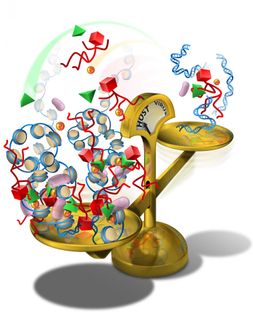ATLAS Biolabs participates in two European research projects to investigate DNA repair and cellular aging
Advertisement
ATLAS Biolabs announces its participation in two European research projects focusing on the impact of chromatin dynamics on DNA damage (aDDRess) and the influence of DNA damage on cellular aging (CodeAge). ATLAS Biolabs will be responsible for the analysis of the next-generation sequencing (NGS) data collected in both projects. This task also includes the development of new strategies and bioinformatics tools for NGS data analysis and the identification of biomarkers of DNA damage.
The DNA in the nuclei of eukaryotic cells is tightly wrapped around histones to form chromatin, a structure subject to constant dynamic changes in the course of DNA replication and DNA repair. In particular, a better understanding of chromatin dynamics in DNA repair would provide novel insights into the mechanisms by which the cell protects itself from DNA damage and the disturbances that cause human disease. Moreover, by investigating the cellular responses triggered by DNA damage, it would be possible to find new approaches for preventive therapies and elucidate the process of aging.
Both the aDDRess and CodeAge projects receive funding from the FP7 Marie Curie Initial Training Network of the European Union. The Training Network opens up career opportunities for young talents and aims to accelerate the transfer of research findings into medical applications by encouraging research collaborations between academic institutions and medium-sized commercial enterprises. The two projects involve a total of 22 research groups in 9 different European countries.
“aDDRess and CodeAge will combine state-of-the-art knowledge in basic molecular genetics, omics technologies, translational research and clinical application. We are excited about contributing to the analysis of NGS data within both projects,” said Professor Peter Nürnberg, CEO of ATLAS Biolabs GmbH. “I am convinced that our customers will benefit from the added competencies that we will gather from this program.”























































